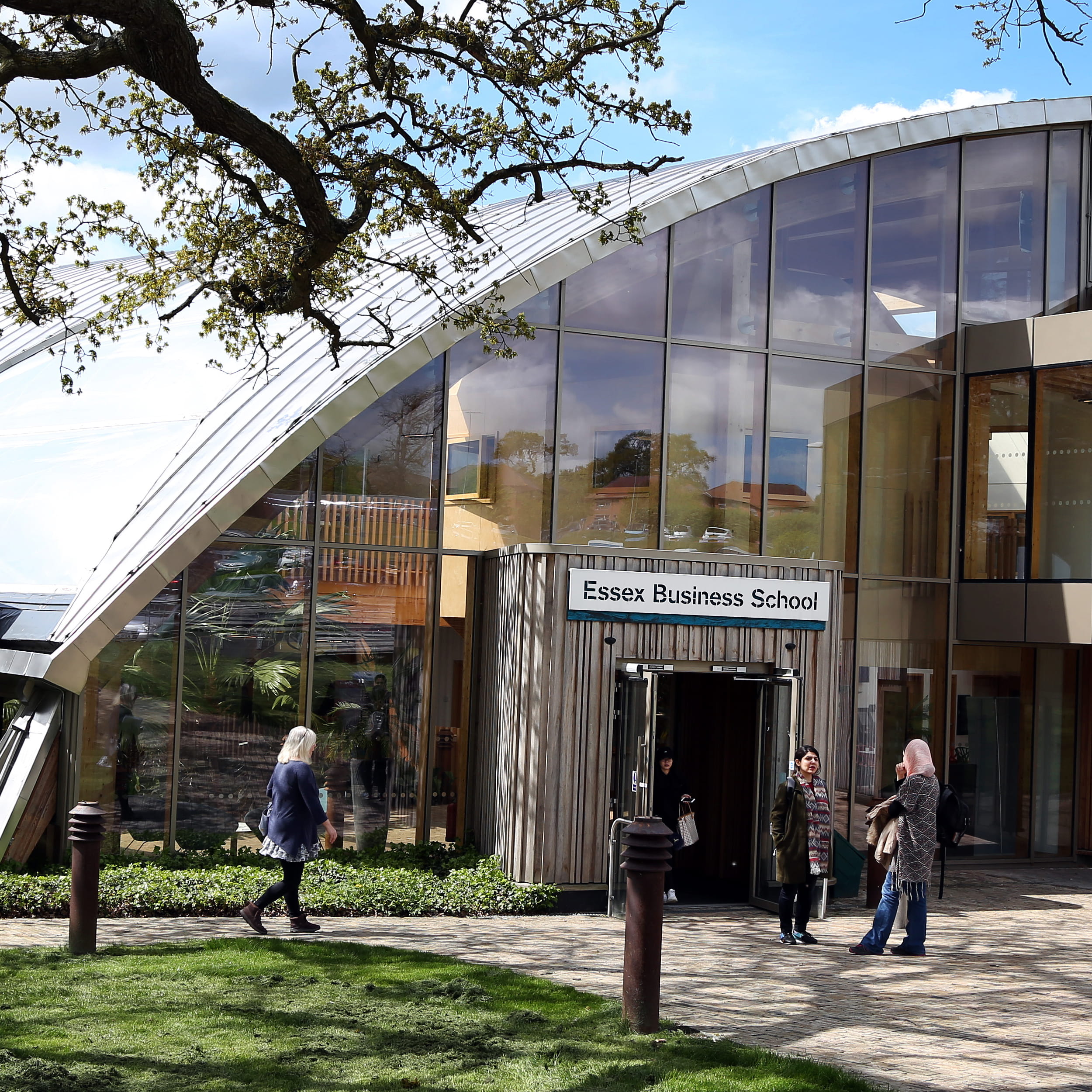Essex Business School (EBS) hosted its first Sustainability Research Event on 20 March 2025, which brought together leading EBS Academics from across different research groups to present cutting-edge research on corporate sustainability, environmental regulation, and social responsibility. The virtual event offered an engaging afternoon of presentations that spanned environmental regulations, green innovation, and biodiversity reporting through to community food systems and local non-profit sustainability experiences.
The event was opened by the EBS Research Director, Prof. Ileana Steccolini, and the EBS Director of Sustainability, Prof. Silvia Gaia, who underlined the importance of fostering academic dialogue around sustainability in business and society.
Tackling Environmental Regulations and Corporate Behaviour
The first speaker, Dr. Debabrata Ghosh, talked about the effectiveness of certain environmental regulatory policies in his presentation Effectiveness of Environmental Regulations: Firm's Decisions and Welfare Implications. From a game-theoretic model, Debabrata compared four widely used policy instruments: taxes, subsidies, binding emission standards, and cap-and-trade systems. His work illustrated that binding standards and taxes are largely equivalent in terms of firm decisions, but subsidies or taxes yield the highest societal welfare depending on the extent of environmental damage. He further suggested that hybrid policies, such as multi-part tariffs, have the potential to align both corporate and policymaker incentives, providing a practical roadmap for developing more effective regulations.
Green Spaces as Drivers of Innovation
Next, Dr. Yiwei Li presented her research on the unforeseen role of green infrastructure in corporate innovation. In Cultivating Innovation: The Role of Outdoor Green Space, Yiwei demonstrated that proximity to green spaces promotes firms' green innovation activities. Using data from China, she found that firms located within a one-kilometre radius of parks and green areas file more green patents and have stronger environmental governance. This effect was stronger in firms operating in competitive markets, firms with weaker pioneering innovation capabilities, higher business diversification, greater media coverage, and lower corporate social responsibility performance. This research points to a powerful and often overlooked link between urban planning and corporate sustainability.
Governance Quality and Biodiversity Reporting
The event then turned to the global stage with Dr. John Malagila's presentation, Corporate Governance, National Governance Quality, and Biodiversity Reporting: Global Evidence. Analysing data from 36 countries over a decade, John highlighted how strong corporate governance and effective national governance systems are crucial drivers of corporate biodiversity reporting. He also found that national governance quality amplifies the positive impact of corporate social responsibility practices on biodiversity disclosures. These results stress the necessity of cooperation between governments and businesses in fostering biodiversity conservation.
The Hidden Complexities of Food Surplus and Donations
Shifting focus to community-level sustainability, Dr. Jordon Lazell shared insights from a two-year ethnographic study of a community food project in Clacton. His talk, Between Surplus Food and Food Donation: Negotiating Sustainable Consumption at a Community Food Project, unpacked the tensions between surplus food use and charitable food donations. Jordon revealed that while surplus food helps reduce waste and address food insecurity, it also raises ethical questions about dignity, access, and dependency on corporate overproduction. His research called for greater transparency and critical reflection on how surplus food is sourced and distributed.
Small-Scale Sustainability at Frogmore Paper Mill
The event concluded with a presentation from Dr. Paul Kelly and Mr. Charlie Leedham, who introduced a new Knowledge Transfer Partnership project developed in collaboration with Frogmore Paper Mill, a historic, non-profit paper recycling mill in the UK. Their talk, Big and Small Sustainability at Frogmore Paper Mill, highlighted how small non-profits can navigate the complexities of sustainability, balancing grassroots environmental efforts with professional business sustainability frameworks. The project aims to support Frogmore’s post-fire relaunch in 2025, blending heritage preservation, volunteer engagement, and innovative recycling practices.
Key Takeaways: Challenges and Opportunities for Sustainable Business
The event’s discussions provided several key takeaways:
- The Complexity of Sustainable Policy Instruments: Regulatory design is nuanced; hybrid solutions can balance societal welfare with firm-level incentives.
- Sustainability and the Built Environment: Green spaces can make businesses more productive. Further research is needed to identify long-term effects, sectoral differences, and possible unintended effects.
- Data and Disclosure Challenges: The biodiversity reporting ecosystem faces significant measurement, verification, and regulatory challenges, particularly in relation to what data is material to capital markets and society.
- Rethinking Food Surplus Economies: Community food projects uncover ethical conflicts concerning food waste, dignity, and dependency. It is necessary to critically interrogate whether surplus systems reinforce overproduction and inequality.
- The Value of Small-Scale, Real-Time Cases: The Frogmore Paper Mill case study reminds us that sustainability is not just an issue for large corporations; the day-to-day operational challenges and learning of small organisations also have important lessons for sustainable business practices.


